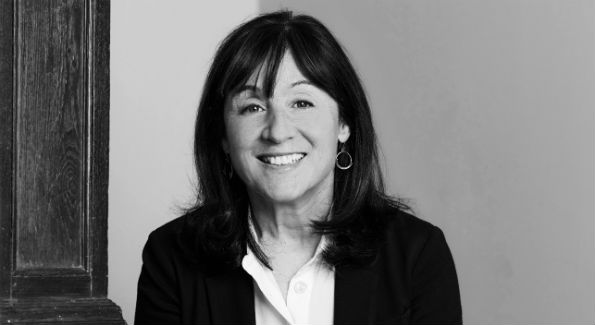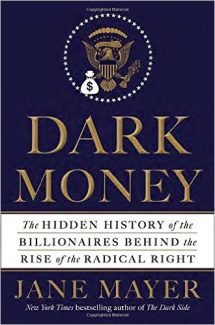Investigative journalist Jane Mayer takes on the billionaires funding the radical right.

Author Jane Mayer (Courtesy Photo)
It’s widely known that the Kansas oil tycoons referred to as “the Koch Brothers” are billionaire funders of libertarian and conservative candidates, think tanks and other groups to promote free enterprise, but what do we really know about them and the network they have built? New Yorker staff writer Jane Mayer aimed to find out, and in “Dark Money” she reveals the shocking backstories of the Kochs and other wealthy individuals who spent hundreds of millions to bankroll an American political system to serve their interests, which led to an era of unprecedented wealth and income inequities.
 WASHINGTON LIFE: This book was so impressively researched. How long did it take you to write and was it difficult to get the information you needed?
WASHINGTON LIFE: This book was so impressively researched. How long did it take you to write and was it difficult to get the information you needed?
Jane Mayer: The book grew out of a 2010 New Yorker piece I wrote about the Kochs’ covert political operations, so in one sense I started the research then, and kept following the money. I knew I was taking on some of the most powerful and ruthless people in the world, so I had to make sure that it was factually unassailable.
WL: Why did this story need to be told? What first gave you the idea to write the book and what kept you going?
JM: I’ve been in Washington since 1984, when I covered Reagan’s White House for the Wall Street Journal. Since then, politics has grown increasingly awash in private interest money. I watched it tie the government in knots. I felt the public needed to understand what was happening to our democracy behind the scenes, and that I had a unique obligation to tell that story because I’d had a ringside seat.
WL: What was the most challenging part of writing the book?
JM: The hardest part was getting people to talk about the Kochs. It was amazing how intimidated people felt by them.
WL: I was surprised by how shady the Kochs were even within the context of their own families (two brothers attempting to have another brother disinherited for being gay, for example). It seems like a miserable way to live. Do you think money has a way of corrupting people?
JM: It’s certainly clear from the families I write about in “Dark Money” that you can’t buy happiness. The conniving and feuding in these families reached epic levels. I suppose they might have been the same if they were broke, but money became the symbol of success, power and even parental favoritism among them. What amazed me was that no matter how many billions of dollars they had, it never seemed to be enough.
WL: What bit of information was the most surprising while doing your research?
JM: I was shocked to learn that the Koch family’s fortune was built not just on building refineries for Joseph Stalin, but for Adolf Hitler, too. It’s a pretty controversial origin for a family that also aspires to control American politics.
WL: What can be done to combat the power of this small group of people in our political system?
JM: I’m a reporter, not a political advocate, so I try to inform readers about what’s going on, rather than providing solutions. But history shows that the influence of big money in American politics swings back and forth like a pendulum, and that when things get too corrupt, the public has cracked down. We’re at one of those moments, I think, where the crackdown is overdue.
WL: What will it take to reduce these billionaires’ power?
JM: Billionaires in America are going to be more powerful than ever because with accelerating economic inequality there are more of them than ever. Numerous studies show that wealthy political donors exert
hugely disproportionate influence over politics and policy, and that their priorities are often in conflict with those of the rest of the population. … We’re at a tipping point where public anger over political corruption is beginning to boil over. You can see it in the surprising success of the campaigns of both Bernie Sanders and Donald Trump, who are running as politicians who can’t be bought.
WL: Would our readers be surprised to know about the “philanthropic” organizations these billionaires set up to write off their political activities? How do they work?
JM: Actually, some of the philanthropists I write about, such as Richard Mellon Scaife, the Pittsburgh oil, steel and banking heir, tell the story very well themselves. I got hold of his unpublished memoir in which he describes unabashedly what a great deal philanthropy was for him, because he could convert it into a political tool and lower his taxes at the same time. He boasts that he personally bankrolled
133 of the conservative movement’s 300 most important organizations. He waged a tax-deductible political war. I call it “weaponizing philanthropy.”
Read this interview and an excerpt from “Dark Money” in the May 2016 issue of Washington Life.




